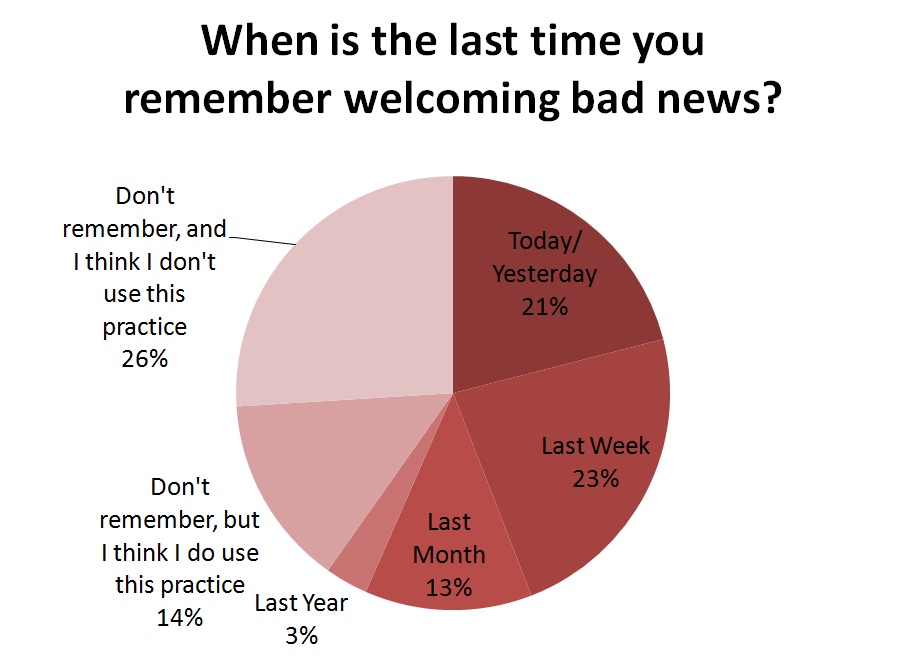In the last installment of our Rationality Checklist survey results, we talked about thoughts you try to not to think about. The next question was about one (unfortunately common) subtype of ideas we try to avoid.
It takes training to be able to reliably dodge a punch, but most of us have fairly good reflexes when it comes to flinching away from bad news. Maybe you anticipate it coming, and make such a sad face, the person talking to you doesn't want to go on. Maybe you're skilled at redirecting a conversation. Maybe you avoid certain sources of information (like your stock tracking website).
Whatever your strategy, you're cutting yourself off from information. Acknowledging something bad doesn't make it worse; it gives you the information you need to take action. But it's hard to overcome a reflex; it takes deliberate, conscious effort. So, we asked you how often you work on welcoming bad news.
I consciously attempt to welcome bad news, or at least not push it away. (Example: At a brainstorming session for future Singularity Summits, one issue raised was that we hadn't really been asking for money at previous ones. My brain was offering resistance, so I applied the "bad news is good news" pattern to rephrase this as, "This point doesn't change the fixed amount of money we raised in past years, so it is good news because it implies that we can fix the strategy and do better next year.")
Our newsletter subscribers responded:
One person shared a story about almost flinching away from a chance to improve, since it meant acknowledging ze hadn't been perfect in the past:
Last month, I realized that there was a better way to run my secular alliance meetings. This made me feel badly, thinking I'd been doing a poor job as president. But I reminded myself that the club had been successful, and this quarter I could make it even more so."
One respondent, after an initial dodge, managed to bring zer attention back to the new information:
"I recall only a few weeks back when I was queried on an illogical error in on a design diagram and immediately I went negative and diverted the problem to other less likely possibilities. However, I did go back and check with more deliberate exploration shortly afterwards and had to back track on my initial response. The better approach would have been immediately to not go negative (error mode) response and taken the advice that yes I might have made a mistake, let me confirm this and will get back to you.
Welcoming bad news as data can also help you have better, more honest relationships with friends and coworkers. If you thank people for information, even if it's not the data you hoped for, you won't be training your friends to present you with a skewed picture of the world. That doesn't mean you have to cover up your instinctive disappointment, or pretend it isn't there. Just remember that being upset about the way the world is is different from being upset about knowing that fact. And you need to know to be able to make a change.
Check out all the results and stories from out Rationality Checklist survey by browsing the ‘Rationality Checklist’ category.



